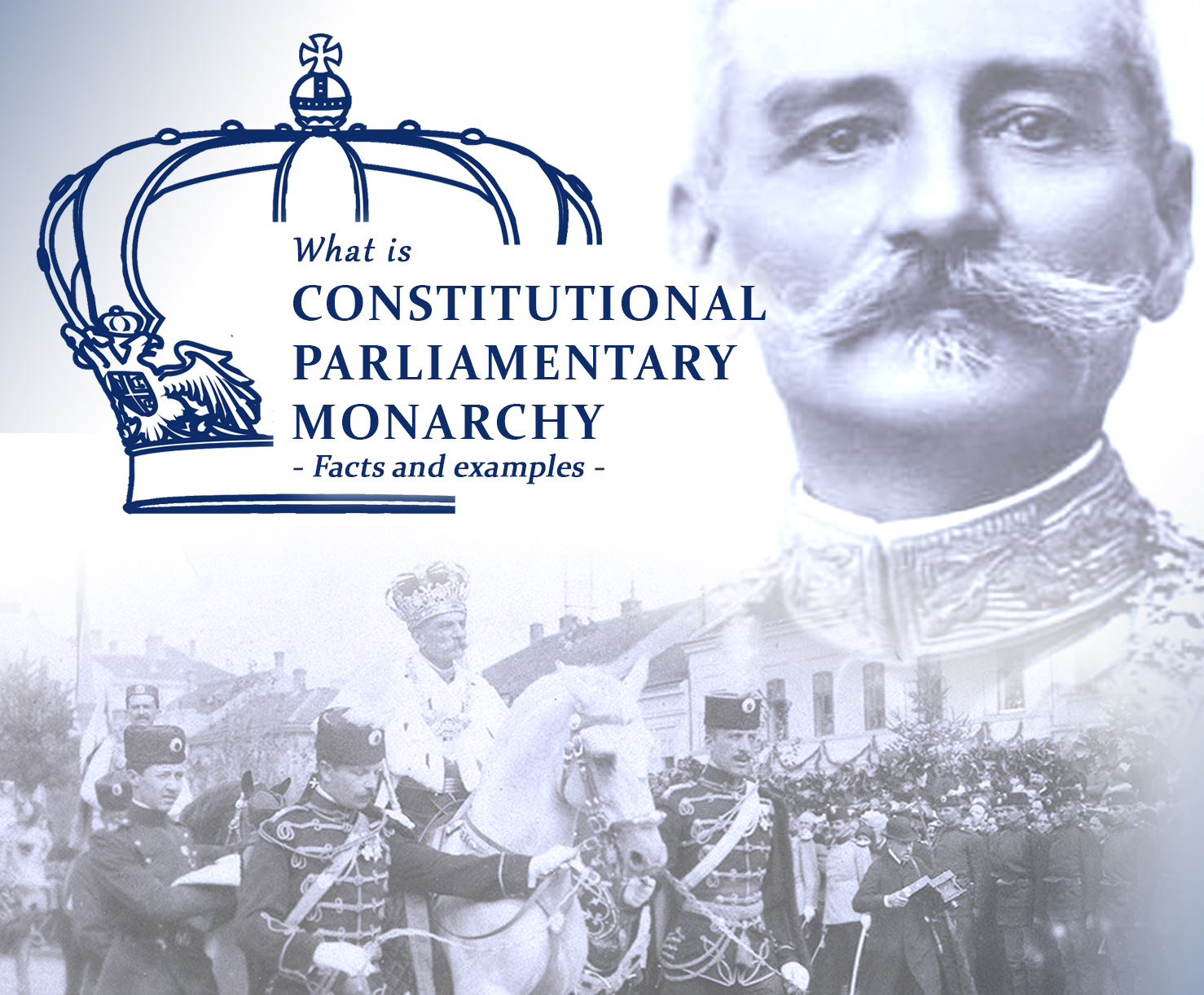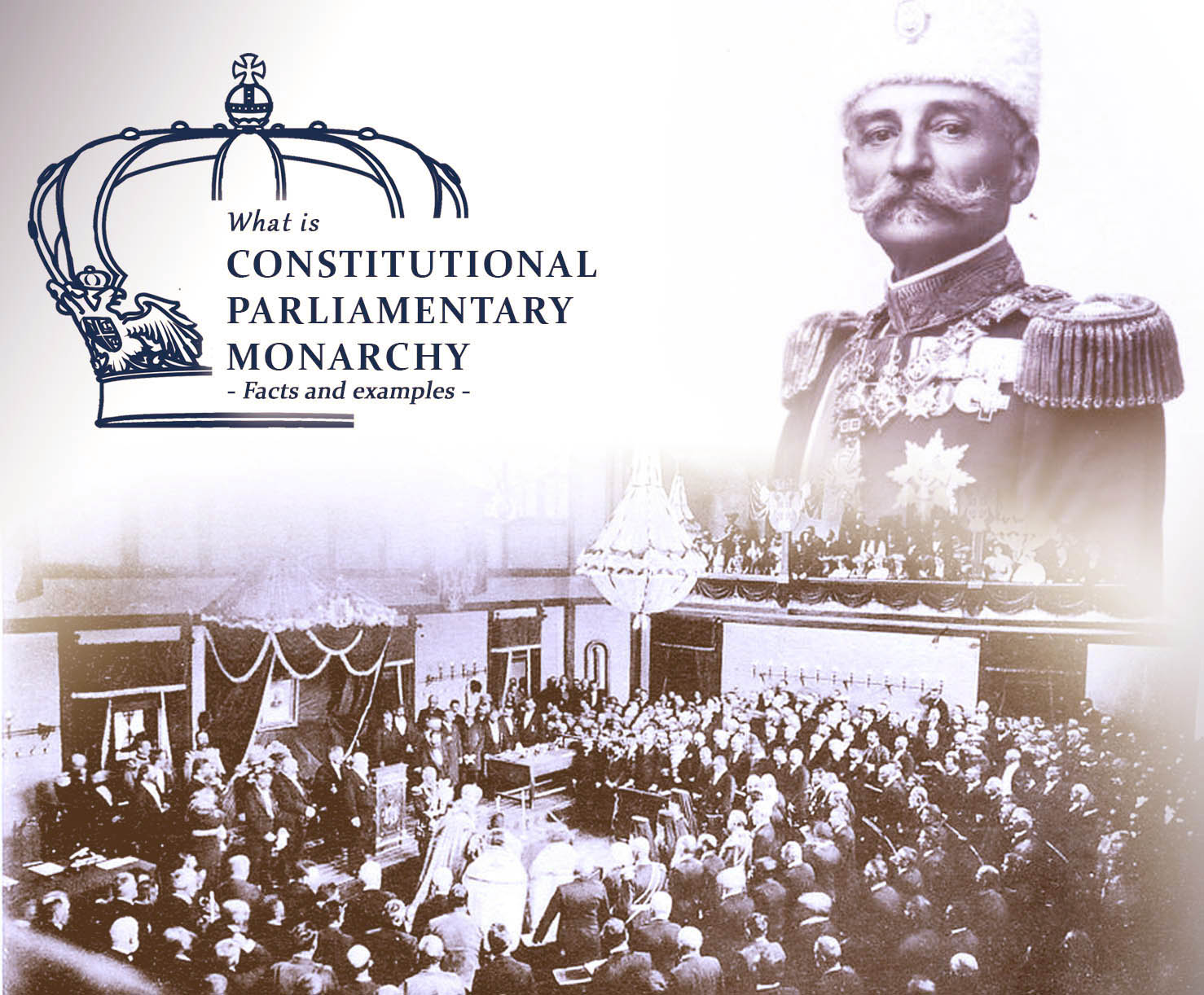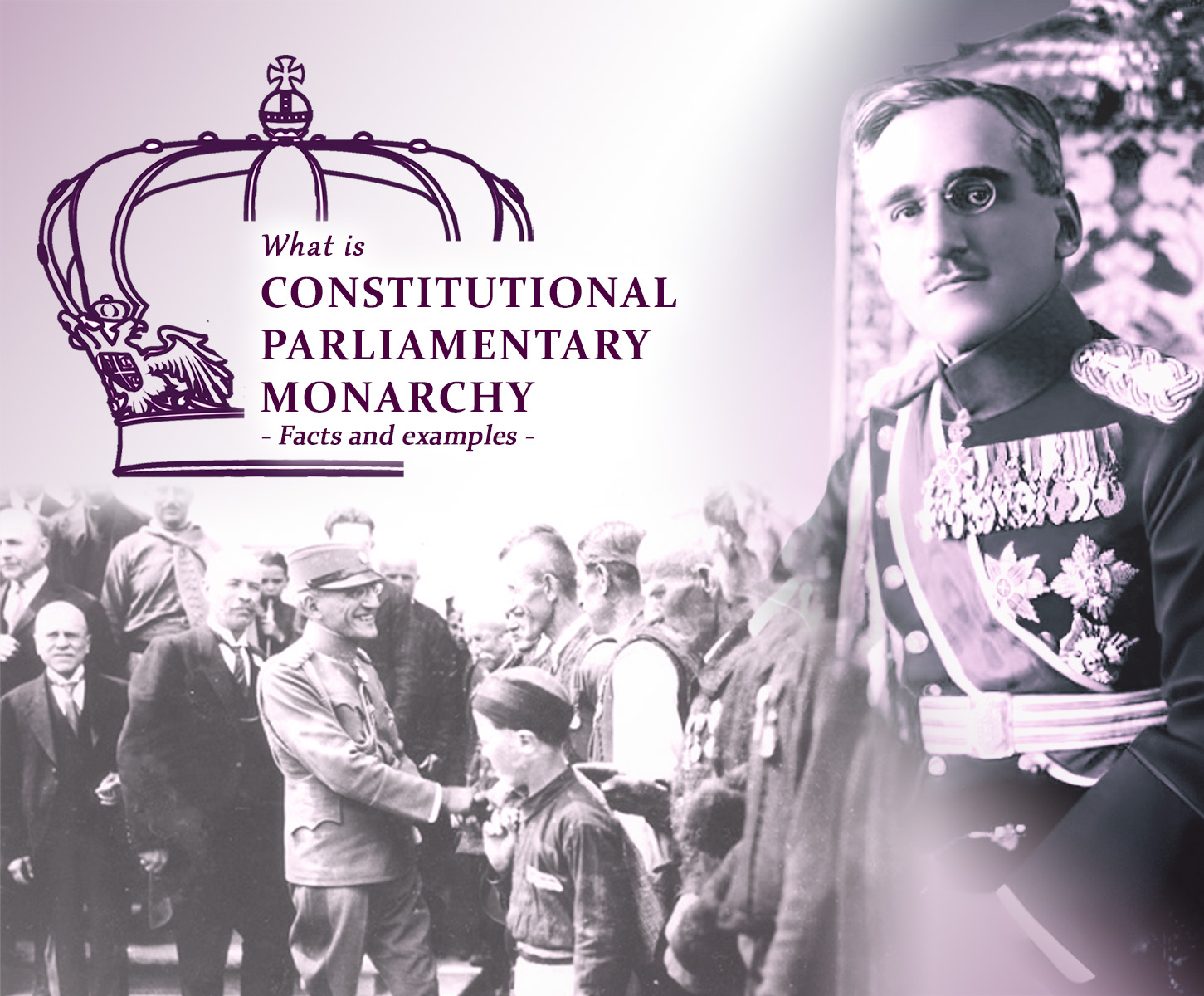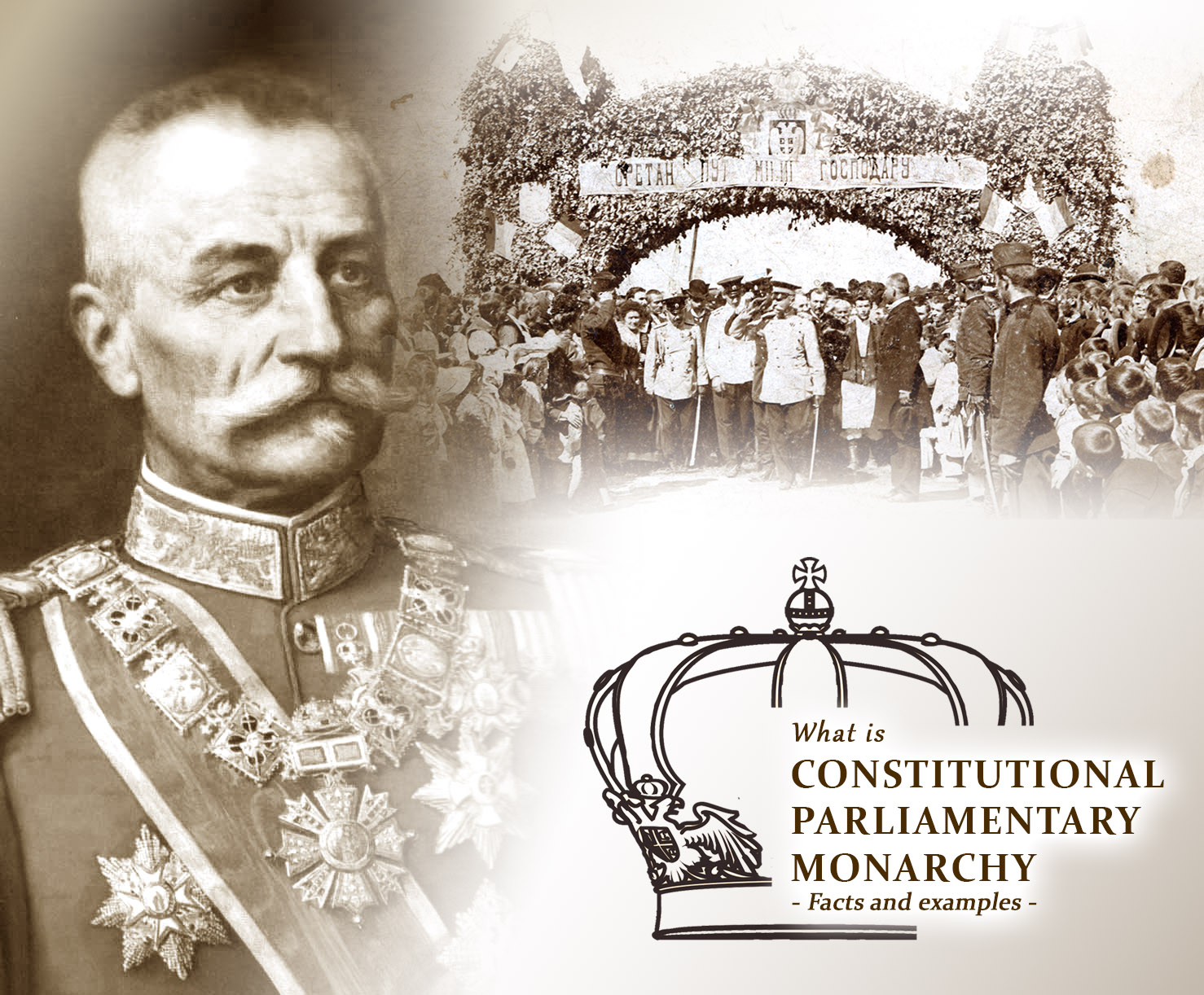Introductory text:
Here you can find all texts containing facts about the main characteristics of the constitutional parliamentary monarchy as a state system, with examples from history and present times. These texts are all part of a social media campaign that has started on HRH Crown Prince Alexander’s profiles with a desire to educate the people and present true facts. Since it is the direct address of His Royal Highness, all texts are written in the first person.
Soon, our cautious approach turned into excitement as we placed our first kiwipokies.co.nz bets. The thrill of spinning the roulette wheel or hitting ‘deal’ on a blackjack hand was palpable. We laughed and cheered with each win, and groaned at our losses.
What struck me was the convenience of it all—the ability to enjoy casino games from the comfort of our own space. It was a fun experience, filled with highs and lows, and a great way to unwind with friends.

One can notice that many people do not know what a constitutional parliamentary monarchy really is, what the features and specifics of this system are, and what the powers and duties of the sovereign are, so starting today, every week I shall share with you a new interesting fact about this form of government. There are many examples both from our past and from the experiences of modern monarchies that show why this system is good both for citizens and the state, but it is necessary to understand its specifics.
An important role of the monarch is that he or she is a non-political person, that he or she is above daily politics. Or, as one of my dear members of the Crown Council, Matija Beckovic, often says: “The king does not rule, but reigns”.
Thanks to such a position, the monarch is the sovereign of all citizens, and his position ensures stability, unity, and continuity of the state.

As already stated in a previous post, an important role of the monarch in a constitutional parliamentary monarchy is that he or she is a non-political figure and above daily politics – the King is the head of state, but the country is governed by the Government.
In a constitutional parliamentary monarchy, the people elect their representatives in free and fair parliamentary elections, who then propose a prime minister based on a parliamentary majority, and the King approves his or her appointment.
The main decisions on running the country are made by the Government and the Parliament. The King, who is not a member of any political party and who is above all of them, is a factor of stability, unity, continuity, and reconciliation. The monarch is there to help politicians overcome their political conflicts and advise government officials to work together for the good of the country and the people.
The picture accompanying this post is of my great-grandfather, King Peter I, taking his Royal oath on the Constitution. On that occasion, he said “the ruler should be the bearer of the freedom and progress of his people. I want to be the true constitutional King of Serbia. The Constitution and all the constitutional guarantees for the freedom and rights of the people, which are the basis of the proper and happy development and progress of national and state life, are sacred to me, and I shall always respect and preserve them with the utmost care. And I ask everyone to do the same”.

“Does anyone think that I am not aware of the dangers I am exposing myself to? I know I can die. It may be unfortunate for me and my family, but that doesn’t matter. I am not at the head of the state to sit idly by and take care of my life. The King must do his duty!” – King Alexander I.
My grandfather’s powerful words are an excellent introduction to what will be the topic today, which is the duties and responsibilities of a monarch in a constitutional parliamentary monarchy.
It is noticeable that arguments are often switched in the public, so we can hear that a foreign monarch “didn’t act in this or that way”, “he was responsible for that” and so on, while it is clear to the better informed that the acts which are discussed are not in the competence of the King at all, but of the Government. The constitutional parliamentary monarchy is an orderly system that brings benefits to the citizens precisely because it is known exactly what the powers and duties are of every member of the State System. And the highest duty of the King is to serve the interests of his people. Modern monarchies are not despotisms where the monarch can do as he pleases.
The monarch has the right to his opinion, which does not have to be in agreement with the Government’s decisions, and there are legal frameworks in which he can express it, but neither the King nor the Government may go beyond those legal frameworks that determine and regulate their actions.
When it comes to doing one’s duty to one’s people, personal feelings must be put aside. Just as my ancestors always represented the interests of our country and people in the first place, this is the duty of every other monarch in a constitutional parliamentary monarchy. And the words of my grandfather, the Knightly King Alexander, from the beginning of this text speak best about how strong this obligation is.

A constitutional parliamentary monarchy ensures continuity – you’ve heard this sentence before, but let’s see what it really means.
Branislav Nusic, the famous Serbian writer, said: “Homeland is not a limited, bordered, embodied object. Homeland is thought, the homeland is faith, and thought and faith never die.” Our people and country are older and more important than any individual. The homeland transcends the limits of human life, it was there before us and will be when we are gone, and our obligation is to ensure the future so that our descendants can live in the land of our ancestors. This is one of the most important duties of the monarch in constitutional monarchies.
While the Government acts in the short term and leads the country in a period that is limited (no matter how long it lasts, from the aspect of statehood it is short term), the position of the King ensures the imposed functioning of the state even in the period when the political situation changes and new actors take over the state helm. Ten years ago, the Kingdom of Belgium did not have a government for 540 days, but the country continued to function despite that crisis.
In that system, the King teaches his successor to always and everywhere be at the service of his people and to work for the benefit of his country. The King does not leave the land to the Crown Prince, as is often thought, he leaves him the obligation to serve his people. In the modern monarchy, the King has no servants, but he is a servant of his state and all the people who live in it. That is why there is an old saying that says: “The King is dead – long live the King.” It shows that the state does not cease to exist with the death of one person. As tragic as the loss of a loved one is, the King’s heir must immediately assume his duties.
When my grandfather sent my father to study in England, after which the assassination in Marseille would soon take place, he said to him: “Peter, now you will have to understand that you can no longer act like a prince, but like any other young man. I want you to work hard and make good friends: you will see later that it is good to have them. Always remember that you will represent our country and that people will judge us by your behavior.” Not long after that, my father heard the words from the Yugoslav ambassador in London: “A terrible thing has happened. You are our new hope. They assassinated our King. Long live Your Majesty!”

Our ancestors bequeathed us many legacies, of which only a few of the most important are the spirit of freedom, persistence in the face of difficulties, and great, sincere love for the Homeland and one’s family. That bequest is an important part of our tradition. And respect for the traditions of a country and its people is another essential characteristic of a constitutional parliamentary monarchy.
It is for a good reason that so many times has been said that history is the “teacher of life”. We should draw lessons from history, learn what was good and what was not in our past, use the positive experiences, and remember the negative ones as a warning, so that we don’t repeat them. Although we live in modern times, our past is the basis, the foundation on which we stand, and without it, we have no future.
Modern constitutional monarchies successfully manage to connect the traditional, centuries-old values of a nation and its glorious history with the modern age. Countries that have incorporated their traditions into modern times are today the most developed countries in the world. Leading among them are the monarchies, which, along with all the other features and by connecting the traditional and the modern, also represent the warrant of democracy and human rights for their people, although one can often hear erroneous claims that it is a retrograde system, a “relic of the past”.
According to the prosperity index for the previous year, 2021, 6 of the first 10 ranked countries are constitutional parliamentary monarchies (the Kingdoms of Denmark, Norway, Sweden, the Netherlands, the Grand Duchy of Luxembourg, and New Zealand), while 10 of them are in the first 20 (in addition to the already mentioned also the United Kingdom, Canada, Australia and the Empire of Japan).
When we look at the democracy index for 2021, among the first 10 countries there are 5 monarchies (Kingdoms of Norway, New Zealand, Sweden, Denmark, and Australia), and in the first 20, there are a total of 10 of them (in addition to the ones already listed – the Netherlands, Canada, Luxembourg, Japan, and the United Kingdom).
These countries are proof of how tradition successfully fits into the modern aspirations of the people to live in stability, peace, and prosperity.

As we have already talked about stability and continuity, we also need to touch on unity, as another essential characteristic of the constitutional parliamentary monarchy. The king is the sovereign of the entire nation. He is there to take care of everyone, overcome all divisions and ensure that the rights guaranteed by the constitution apply equally to all citizens, regardless of their political, national, or religious affiliation. It is the gathering point of the people, and the importance of that role comes to the fore especially in unstable and difficult times, when unity is essential and most necessary.
An individual can rarely do as much alone as a team of people can. The unity of a community does not negate the individual characteristics of those who are part of that whole, but only guarantees that by working together, the difficulties that affect everyone will be overcome more easily and efficiently. Let’s take the example of one of the most tragic but also the most glorious periods of our history – the First World War. Even then, the MPs continued their political struggles, although the Parliament did not have sessions in the capital, but in Nis or Corfu. Let’s remember that at the end of 1914 and the beginning of 1915, the Parliament was shaken by the so-called “Opancar affair”, related to abuses during the procurement of opanci (Serbian traditional footwear) for the army.
In the midst of the Battle of Kolubara, when many thought that the end of Serbia had come, the one who could do the impossible and stop the destruction – King Peter I – went to the trenches to be with the army. The old, illness-ridden King came among his soldiers and released them from the oath given to him, but not to the Fatherland. And while he and ordinary soldiers were shooting at the enemies, his sons were not safe either. The Serbian army knew very well that Regent Alexander, the Supreme Commander, was at the head of the troops and always with his fighters, and that his brother, Prince Djordje was seriously wounded in the battle at Mackov Kamen. Carried by the example of their King, they managed to extract from themselves the last strength they had and drive the enemy out of the Fatherland.
This was also shown later, in the Albanian Golgotha, on Thessaloniki Front, and in the rush back to Serbia – the King was always with the people and gave them the strength to persevere. It didn’t matter what a soldier was before the war, what divided them before was left aside, and under the leadership of their King, they fought for their country, their families, and their homes.

We have already discussed the importance of the Crown in contributing to unity and democracy in the previous post, but we also need to touch on a topic that many are interested in – how the King can be a factor in bringing together citizens in a constitutional parliamentary monarchy, when there are also those who are republicans.
The first thing to emphasize is the fact that the actions of republican factors in modern monarchies are present and, of course, absolutely permitted. All citizens have the right to their opinion and to have their voices heard. And the experiences are different. For example, citizens voted against Australia becoming a republic in a referendum in 1999, while in 2021 Barbados, on the other hand, left the Commonwealth and became a republic. What is most important is that the will of the people is always respected, but also, as already said, that there is a possibility for the citizens to express their position clearly and openly.
This unequivocally shows the democratic nature of the constitutional parliamentary monarchy, where citizens enjoy all freedoms (which cannot be said for dictatorial regimes, such as the communist one in our country, where the voice of those who thought differently was drowned in the blood). The position of the monarch makes it possible to live in these countries fully in accordance with the words spoken by Voltaire a long time ago, which are the essence of civil liberties and democracy: “I do not agree with a single word you have spoken, but I will defend your right to say them to the death.”
As I always like to point out an example from our past, I will also share an anecdote about my great-grandfather King Peter I. It is said that when he became the monarch, the republicans organized a demonstration in front of the Palace, shouting against the King. Although the adjutant advised my great-grandfather not to go out on the balcony, he did not listen to him, he went out in front of the protesters and told them: “Go ahead, my children, shout! I came here so that you would have the right to shout whatever you want!”

Within this presentation of the facts about the constitutional parliamentary monarchy, it is necessary to also cover a topic that is of essential importance for every state in the world, and that is the economic aspect. Although claims can often be heard that in monarchies “Royal families live by exploiting the people”, this is not a truthful statement, as can be seen from the experience of our country from the era of the Kingdom.
In a constitutional parliamentary monarchy, the law regulates how much money the monarch receives from the state as the highest state official, as well as other members of the Royal Family, if they perform a state function. My ancestors, our Kings, received a salary from the state called the Civil List, which was paid monthly and defined by law. It was certainly not their only income, but it was the only one that came from the state. It is also very important that there was a strict line between what was the King’s personal property and what was state property, which was strictly respected. My ancestors, respecting the Constitution of their country, regularly paid taxes on private property, like all other citizens.
My grandfather, King Alexander I, was also a wise businessman, one could say an entrepreneur, who knew how to invest and increase his wealth, so that he received a certain part of his income from investing in various businesses. This was continued by my father, King Peter II. The state did not finance the King’s personal investments or his property, but on the other hand, the King financed many charitable projects with his private money and created endowments for the benefit of all, which still serve to benefit our people today. In addition, he gave appanages to other members of the Royal Family (including some members of the Montenegrin dynasty), scholarships to gifted students, helped orphanages with money and food, donated for the construction of churches, bridges, roads, and monuments, gave salaries to workers at the Palace, pensions and much more.
My ancestors knew how to acquire, but also how to use what they acquired for the benefit of everyone, as did many other great benefactors of our people – Ilija Milosavljević Kolarac, Captain Miša Anastasijević, and many others. Of course, all this was in the time before the arrival of those who could not acquire anything themselves, but they loved to steal from others. More about that will be said in the next post.

With the previous text, we have started the story about the economic aspect of the constitutional parliamentary monarchy. It is clear that these states are well-regulated systems in which it is known exactly what belongs to the state and what to Royals, but it should also be mentioned that this is a system that contributes to increased savings in the state budget. Many people do not know that in many republics, including ours, in addition to current presidents, former presidents are also financed from the state budget. On the other hand, in monarchies, there are no expenses for presidential elections, and as a brand it also brings income, numerous events of the Royal Families, as well as visits to the Royal Estates, draw a lot of attention and attract many tourists. It has already been said – it is a well-ordered system where every activity, including the economy, is directed to the benefit of the state and its citizens.
And now, as announced the previous time, let’s see how the rumor that “the monarchy lives on the backs of the people” has spread. Our tradition is certainly different, our people still remember their thrifty Uncle Pete (King Peter I), my great-grandfather, to whom his finance minister Lazar Paču told that for the wedding of his daughter the King should take a loan like any other citizen, which my ancestor accepted without question. The main culprits are those who have been spreading negative and above all false propaganda about my family and everything related to the era of the monarchy for decades. They spoke against the Kings who ruled according to the Constitution and the laws, while their leader enjoyed the fruits of other people’s work, making decisions alone, in the style of absolutist tyrannies and despots. And all that while, as my dear friend, a member of the Crown Council, Mr. Predrag Marković said: “He (Tito) covered himself with other people’s sheets, ate from other people’s plates, slept in someone else’s, stolen house.”
Until 1945, it was not a shame for someone to be well off if he acquired the property through honest work. After the arrival of the new, undemocratic system, suddenly those who knew how to acquire were seen as criminals, while in fact, the real criminals were those who stole what someone else honestly created. I will end with a quote from another of my dear advisers of the Crown, academician Dušan Kovačević: “When talking about the beauties of Belgrade, it is all that was made during the time of the Kingdom. The communists didn’t even paint it! Everything worthy was made then, in the monarchy.”

It can be heard that the monarchy as a form of government is an archaic and outdated system, but this is not true. The examples of modern constitutional parliamentary monarchies show that this system has its place in the 21st century and in all centuries to come. The monarchy changes along with society, keeping and respecting all that is good from tradition and history, and improving what needs to be improved. In previous posts, there was a lot of talk about how it is crucial for this system that everything is done in the interest of the people. Therefore, the monarchy can not be separated from the people, and it always keeps pace with the people and their development, but again maintaining that fine balance of respecting tradition and not forgetting the roots. It is a well-known sentence that defines the position of the monarch in our country – “By the grace of God and the will of the people”. It precisely signifies the connection between tradition and the will of the people, which can be changed and adapted to new times in various aspects, and it is the duty of the monarch to respect and accept that will.
And when we already mentioned the will of the people, historically speaking, the state of Serbia was a monarchy in some form from its earliest times, where we had as rulers: Great Princes (Ser. Veliki Župan), Kings, Despots, Princes, and even Emperors. The only two periods when Serbia lost its monarchy coincided with the period when our country fell into slavery – the first time under the Ottomans, and the second time under the communists. Free Serbia has a strong monarchist tradition. After World War II, the non-democratic communist regime abolished the monarchy in a completely illegal way, by force. The republic system, which itself is of course not bad, was not established in the right way in Serbia.
The Republic of Serbia was created in 1945 in elections that were not democratic. Supporters of the opposition at that time were intimidated and even killed. There was only the option to vote for or against the Communist Party, with the notorious lists of voters who voted against being made.
Although a republic can be and is a good form of government in some countries, the manner in which it was established in Serbia is questionable. Because the will of the people was not listened to, but the will of the dictatorial regime. An old Latin proverb says it well – Vox populi, vox Dei – Voice of the people, the voice of God.
